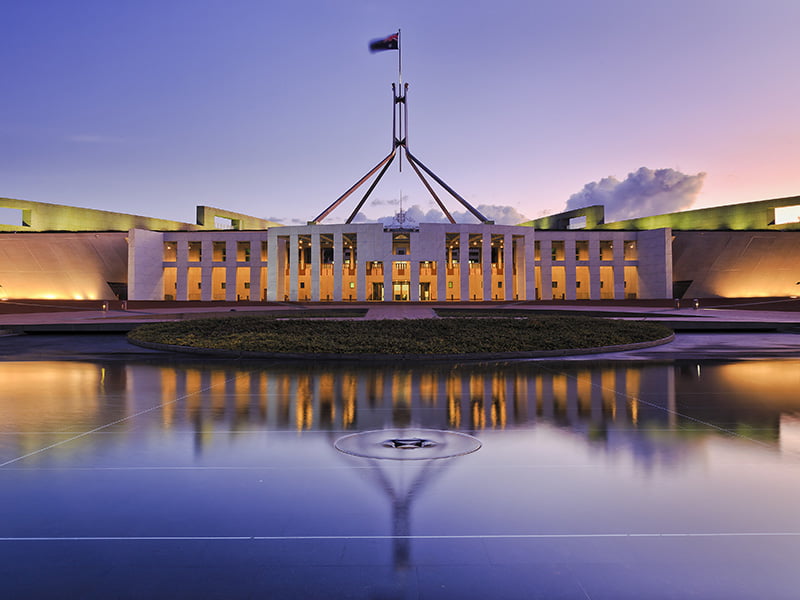Opinion: At a time when the economy is reeling from pandemic-related stress, when geo-strategic tensions have put a premium on building sovereign capability, and when the pace of technological change has accelerated, Australia finds itself without an Industry minister.
In reality, the Industry portfolio has been rudderless for most of the year, ever since Scott Morrison’s extraordinary decision to shift Christian Porter to the role from Attorney-General’s in March, in the wake of historic rape allegations.
Whatever small amount of stability that had been through the tenure of Karen Andrews was demolished by that terrible, terrible decision.

Even though Mrs Andrews was Industry minister for just 18 months, she held the job longer than most of the others that have held the position since the Coalition formed government in 2013.
Angus Taylor is the eighth person to hold ministerial responsibility for Industry. To say again, he will be the EIGHTH person.
It is worth doing the rollcall. Each name will trigger mass eye-rolls at all of the new initiatives, new reports, new reviews, new directions, new “fresh-thinking”, new priorities, new agendas that each new minister has brought with them.
First came Ian Macfarlane (two years). Then Christopher Pyne (nine months). Greg Hunt (six months). Arthur Sinodinos (11 months). Michaelia Cash (eight months). Karen Andrews (18 months). Christian Porter (less than 6 months). And now acting minister Angus Taylor.
Now that’s a conga-line if ever there was one.
So, what are some of the decisions that are sitting on the minister’s desk? Well, we are sitting in lockdown in the middle of a pandemic, so decisions about how to build domestic mRNA manufacturing capability is one thing.
But that’s just one of the hundred other sovereign capability/supply chain issues that the portfolio is supposed to be taking seriously. What about rare earths and critical minerals? What about artificial intelligence, and quantum computing?
Surely it would be helpful to have some consistency in the Industry portfolio to address these massively important areas?
The Industry minister is also the Minister for Science and Technology. Where is Australia placing its bets to make sure that we have a domestic capability in these fundamentally important areas of strategic interest?
Even flagship programs like the Growth Centres are caught in a moment of indecision. The program’s funding will dry-up next year – and yet there is no plan to replace it.
And then there are the submarines. The submarine program is at least as much about Industry and the building of sovereign industrial capability as it is about Defence.
Christian Porter’s rambling justification to the media detailing his rationale for resigning was pathetic.
The instability of the Industry portfolio is a shocking failure of this government, at a time when the nation can least afford instability.
There are many smart and invested people working on the challenges that Australia faces, and many incredible, innovative companies working to build Australian capability. No-one is waiting for this government to get its act together.
But surely they deserve better. Patience is thin.
There was no indication from the Prime Minister on Sunday whether the acting Minister for Industry, Science and Technology Angus Taylor will hold the portfolio all the way until the looming federal election.
If not, then we will be on to Minister Number Nine.
Do you know more? Contact James Riley via Email.


Industry policy is complex and nuanced, and needless to say much misunderstood. Having worked 20 year plus in the Industry Department, my experience is that it takes a Minister at least two years to come to an understanding of what is involved. Eight ministers in eight years means the Department has to work miracles for anything to happen
The Industry portfolio is critical to our country’s urgently required diversification back into sovereign manufacturing and AI. It has floundered for over 20 years and some of the Mandarin’s have been in place in senior APS positions for that length of time, with so called policy knowledge but very little industry knowledge. What they have achieved has been de-industrialisation with a lack of capability and resilience.
Eight Industry Ministers sums it up- A major political fail. It may have been a better fit to give Industry to the capable Dan Tehan as Trade minister as there are many synergies. Although, poor old Dan will have his hands full with the UK FTA, disputes with China and now France and the EU free trade agreement. The fact that Porter puts himself over the country at this delicate time is extremely disappointing. Porter needs to disclose the $1 million trust (undisclosed- not blind managed) and resign from Parliament not just the Ministry. A refresher course on ethics and ACID responsibilities would be in order across the board including the Mandarins. Lets hope Taylor can bring change as the Energy industry is our pathway to diversifying our economy. Renewable energy is required to produce renewables. unlike the 80% that is produced by coal fired generation in China. Along with AI, quantum computing, hydrogen, green steel and aluminium, the need to manufacture hundreds of millions of PV panels should see a rebirth of local production and this must be done locally for balance of payments, reduced transport emissions and a circular economy.
May also explain significant delays in the notification of grant recipients in federal MMI (modern manufacturing initiative) grant applications…